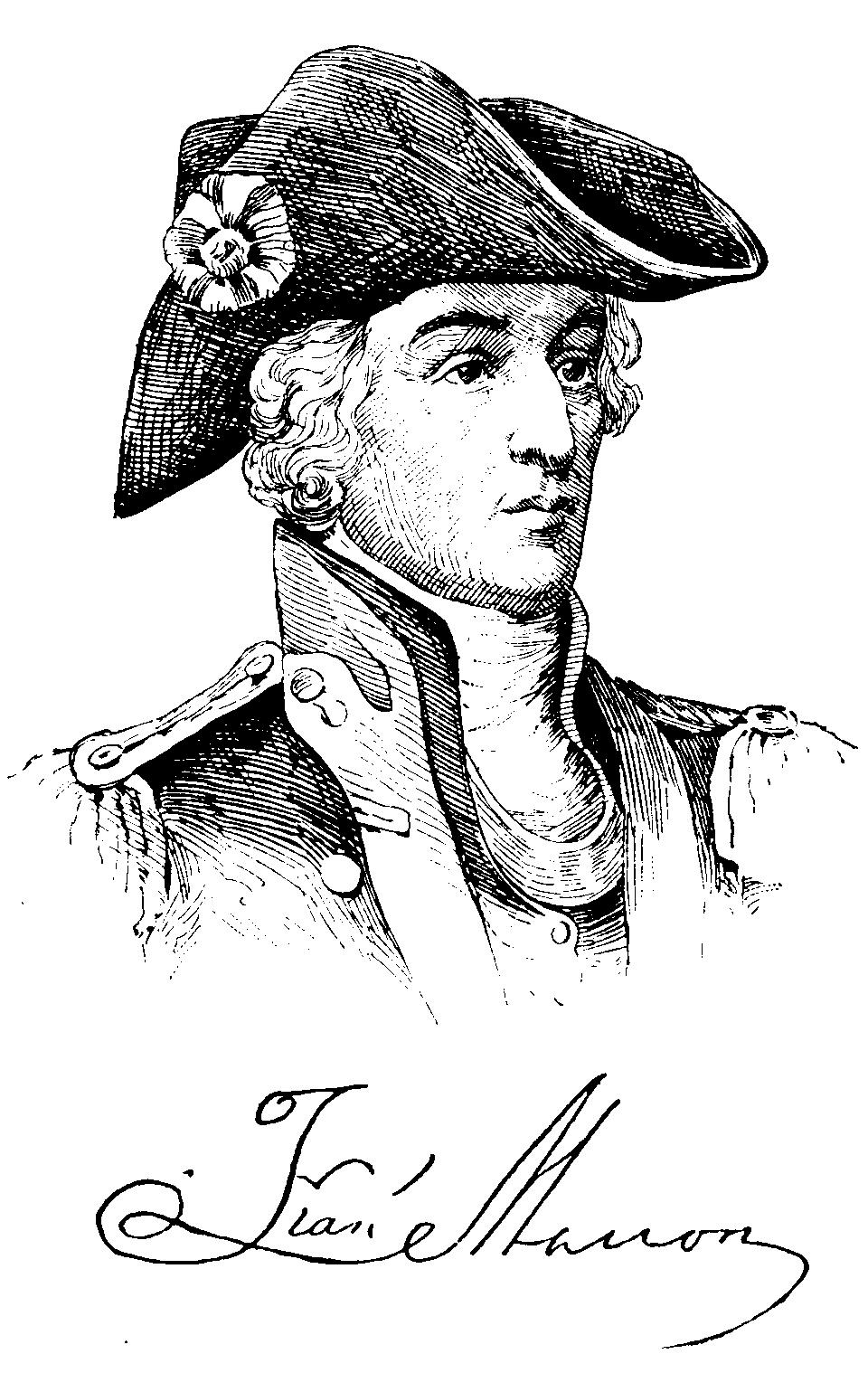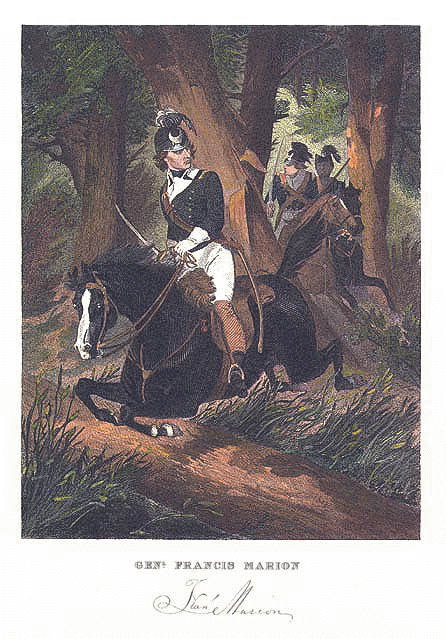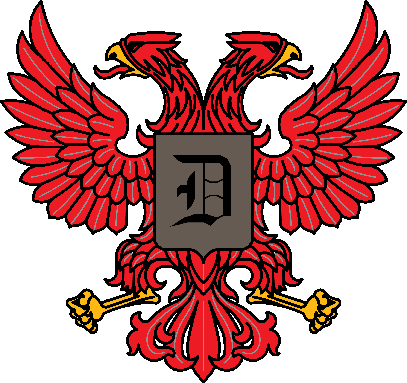

Francis Marion, The "Swamp Fox"
"THE SWAMP FOX, colonial American soldier in the U.S. War of Independence (1775-83), nicknamed by the British commander Colonel Banastre ("Bannister") Tarleton for his elusive tactics.
Marion gained his first military experience fighting against the Cherokee Indians in 1759. In 1775 he was elected to the first provincial congress of South Carolina. That same year, with America on the brink of revolution, the congress commissioned him a captain of the newly-formed 2nd South Carolina Regiment. In September 1775 Marion commanded the capture of British forts in Charleston, South Carolina. Promoted to major in February, 1776, he participated in the defense of Charleston on June 28. Later in 1776 was promoted to Lieutenant Colonel and assumed command of the regiment.
In 1780, Gen. Benjamin Lincoln surrendered Charleston to the British, but Marion, with a broken ankle, eluded capture. He slipped away to the swamps, gathered together his band of guerrillas, and then began leading his bold raids. Marion and his irregulars often defeated larger bodies of British troops by the surprise and rapidity of their movement over swampy terrain. In late 1780 he was appointed Brigadier General of the S.C. Militia. In cooperation with troops under the command of Henry Lee, he raided Georgetown and took Fort Watson and Fort Motte. He went on to support attacks on Augusta and Ninety-Six, S.C.
Near the end of the war, Marion and American General Nathanael Greene joined forces. In 1781 they successfully fought at the Battle of Eutaw Springs and forced the British retreat to North Carolina. For a daring rescue of Americans surrounded by the British at Parkers Ferry, S.C. (August 1781), Marion received the thanks of Congress. He was then appointed a brigadier general, and after the war he served in the senate of South Carolina (1782-90).
While still leader of his brigade, Marion was elected to the senate of South Carolina in 1781. He was reelected in 1782 and again in 1784, after the war had ended. In appreciation for his military service, the state legislature appointed Marion commander of Fort Johnson, in Charleston. " ...from the website: " The Swamp Fox"
Dunlaps and Dunlops
served with the Swamp Fox
Nathaniel Greene to Samuel Huntington 4/21/1781
Papers of the Congressional Congress M247 roll 175 vol 2 pg. 169
National Archives & Records Administration
Transcribed by Billy Markland
Extract of a Letter from Genl. Marian [sic], dated April 21st 1781
"A small detachment which I sent to watch the Enemy's movements in Camden
took at the mouth of Cashaw [Kershaw's] Creek a Boat laden with Corn, killed 2,
wounded 4, and took 6 British Soldiers and 1 Tory.
Col. Horry crossed the Pedee with 70 Men to intercept the Tories who I expected
would join Col. Watson in his march up Pedee, he fell in with a party of 30
foragers and as many more to cover them, he charged them on Horseback in Wm.
McPherson's plantation, killed 2 and took 13 British Soldiers, two Tories, and 2
Negroes, without the loss of a Man.
General Lillington reports that the Bladen Militia of North Carolina fell with
great spirit on the rear of Lord Cornwallis's Army as he was retreating to
Wilmington, and killed 13 Men, and took between 15 and 20 Prisoners.
Genl. Pickens reports that Col. Clarke on the 23d of March had an Action with
Major Dunlap
near ninety six, killed 34 and took 42 Prisoners. Among the former the Major
himself is numbered."
Pvt. Robert Dunlap II. 1751-1831 Born
in Lancaster County, Pennsylvania. Died in Chester City, South Carolina. Served
the Revolution with the famous Francis Marion, the "Swamp Fox". Also serving
with the Swamp Fox were Pvt Samuel Dunlap,
Pvt John Dunlop, Pvt William Dunlap and
Captain Samuel Dunlap
